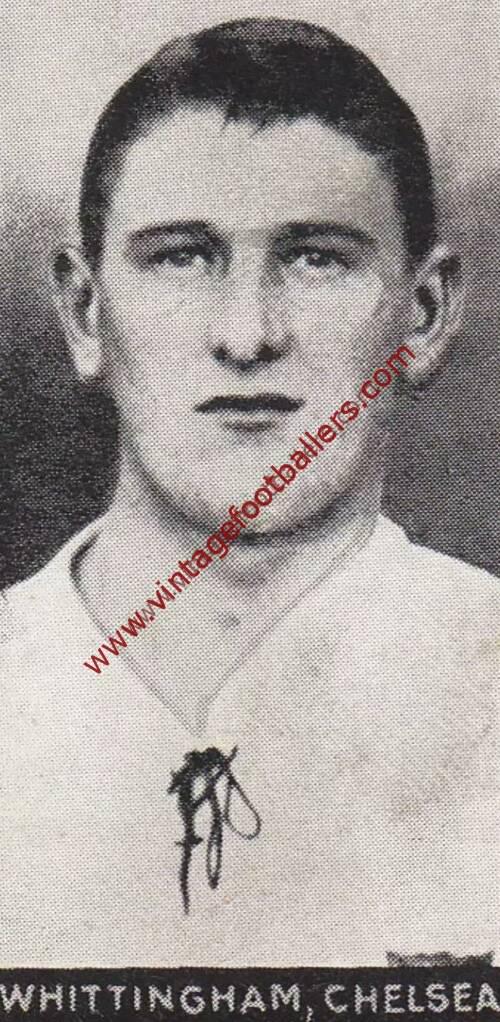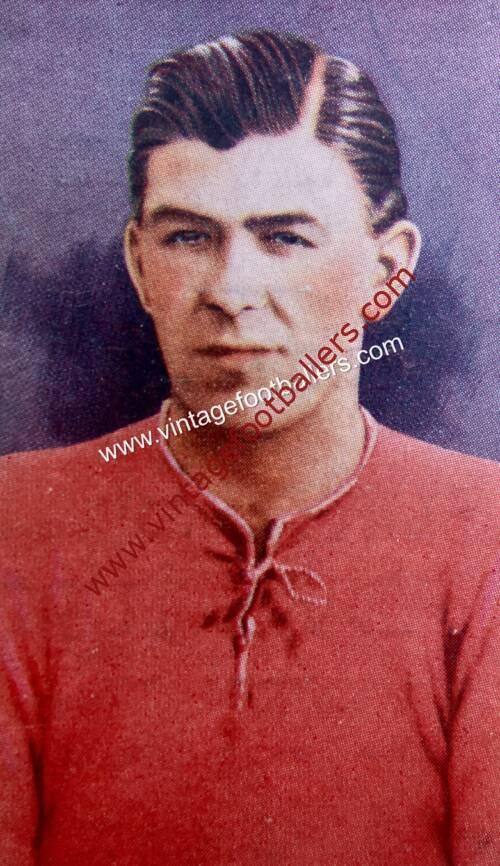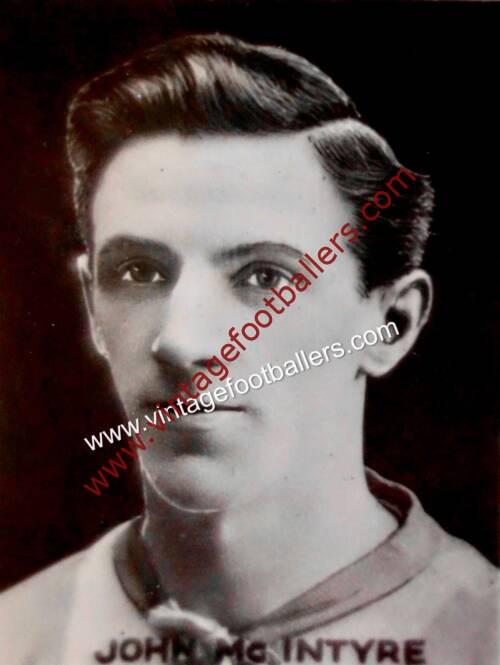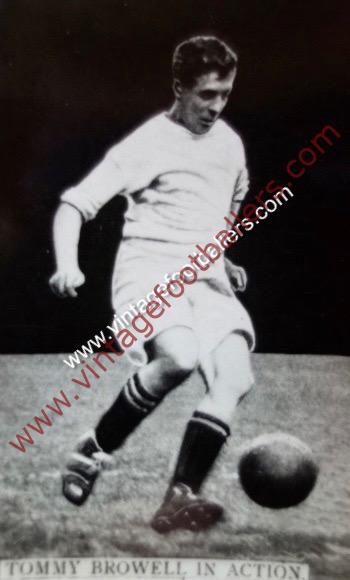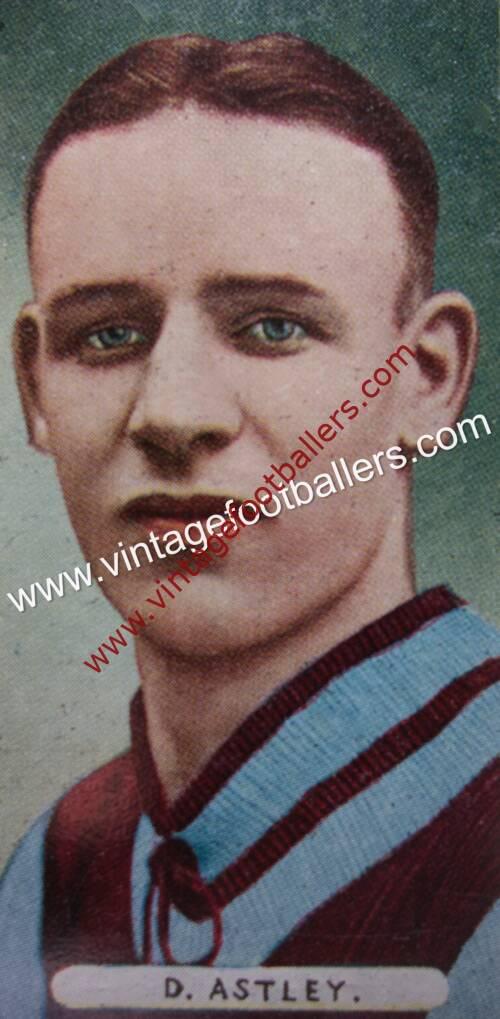Please choose your photo size from the drop down menu below.
If you wish your photo to be framed please select Yes.
Note: 16″x 20″not available in a frame.
Images can also be added to accessories. To order please follow these links
£8.95 – £49.95
Please choose your photo size from the drop down menu below.
If you wish your photo to be framed please select Yes.
Note: 16″x 20″not available in a frame.
Images can also be added to accessories. To order please follow these links
Goldenhill, Stoke-on-Trent born inside forward Bob Whittingham began his football career with Goldenhill Wanderers in 1903 and spent 1904-05 on the books of Stoke, without making their first eleven, before returning to play for Goldenhill. He joined Crewe Alexandra in 1906 and spent part of 1906-07 on the books of Burslem Port Vale, again without making the breakthrough into their first team. He then joined Second Division Blackpool in the 1907 close season, making his Football League debut at Stockport County that September, scoring in a 1-1 draw, and top scoring in consecutive seasons for The Seasiders with 15 and 13 goals from 54 appearances, at better than a goal every other game.
By January 1909 he had been sold to First Division Bradford City where his fine goalscoring form continued in the top flight with a hat-trick in a 3-1 victory over Sheffield United that March and scored 11 goals in nine games to save The Bantams from relegation at the expense of Manchester City, followed by a hat-trick against Tottenham Hotspur in a 5-1 victory that September. He had scored 31 goals in 45 appearances by the time Chelsea stepped in for his signature in April 1910 for a fee of £1,300.
Whittingham arrived too late to save the club from relegation to the Second Division, but he scored prolifically during the next two seasons, hitting 34 goals in his first full season with Chelsea, though they narrowly missed out on promotion, finishing third. His 26 goals in 1911-12 included hat-tricks against Nottingham Forest and Clapton Orient and comprised almost half of the club’s season total, and played a big part in their winning promotion back to the First Division as Second Division runners up. He scored 12 goals in 1912-13 to become the club’s top scorer for a third consecutive season. He left Stamford Bridge in 1914 after 79 goals in 123 appearances and had a stint with North Eastern League South Shields before the First World War broke out.
During the War he guested for Stoke, where he became a prolific scorer hitting 26 goals in 1915-16, 22 in 1916-17, 15 in 1917-18 and 23 in 1918-19. He also guested for Fulham and Port Vale. He made an appearance for The Football League against the Scottish League at St Andrew’s, Birmingham in February 1919 in the first representative match played after the First World War, and scored the second goal in a 3-1 win. According to the Daily Express reporter, “the pick” of the English XI were Whittingham, Billy Morgan, and Joe Clennell. Despite his prolific goalscoring record, Whittingham was never capped for England, though he did feature in a Victory International against Wales at the Victoria Ground on 18th October 1919, scoring in a 2-0 win.
He returned to Chelsea after the War, playing six more games in August and September 1919, scoring once, finishing his time with the club with a record of 80 goals. He then moved to Stoke again for a £500 fee in October, where he scored eight goals in 18 Second Division games in another brief spell at The Victoria Ground. His goal tally included one against rivals Port Vale in a 3-0 win at The Old Recreation Ground in March 1920. However, he struggled with an ankle injury and ill health forced his retirement in April 1920. He was given a benefit match by Stoke in October 1920.
Whittingham spent 1920-21 on the books of Port Vale without making a first team appearance and then he joined Cheshire County League side Macclesfield at the start of the 1921-22 season, scoring twice in 10 appearances but continued to struggle with his fitness and moved on to Midland League Scunthorpe & Lindsey United in February 1922. He later spent 1923-24 on Wrexham’s books without appearing for them before finally returning to Goldenhill Wanderers in 1924 before his retirement.
| Weight | N/A |
|---|
